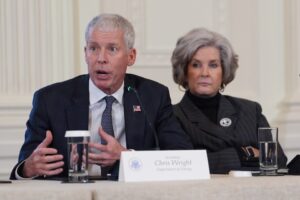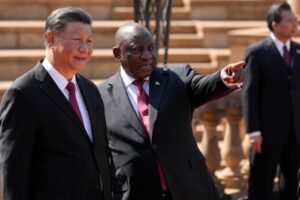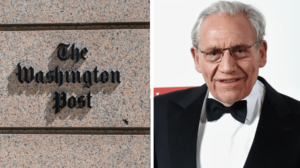The Dictatorship
With Starbucks’ new bathroom policy, America has nowhere left to go
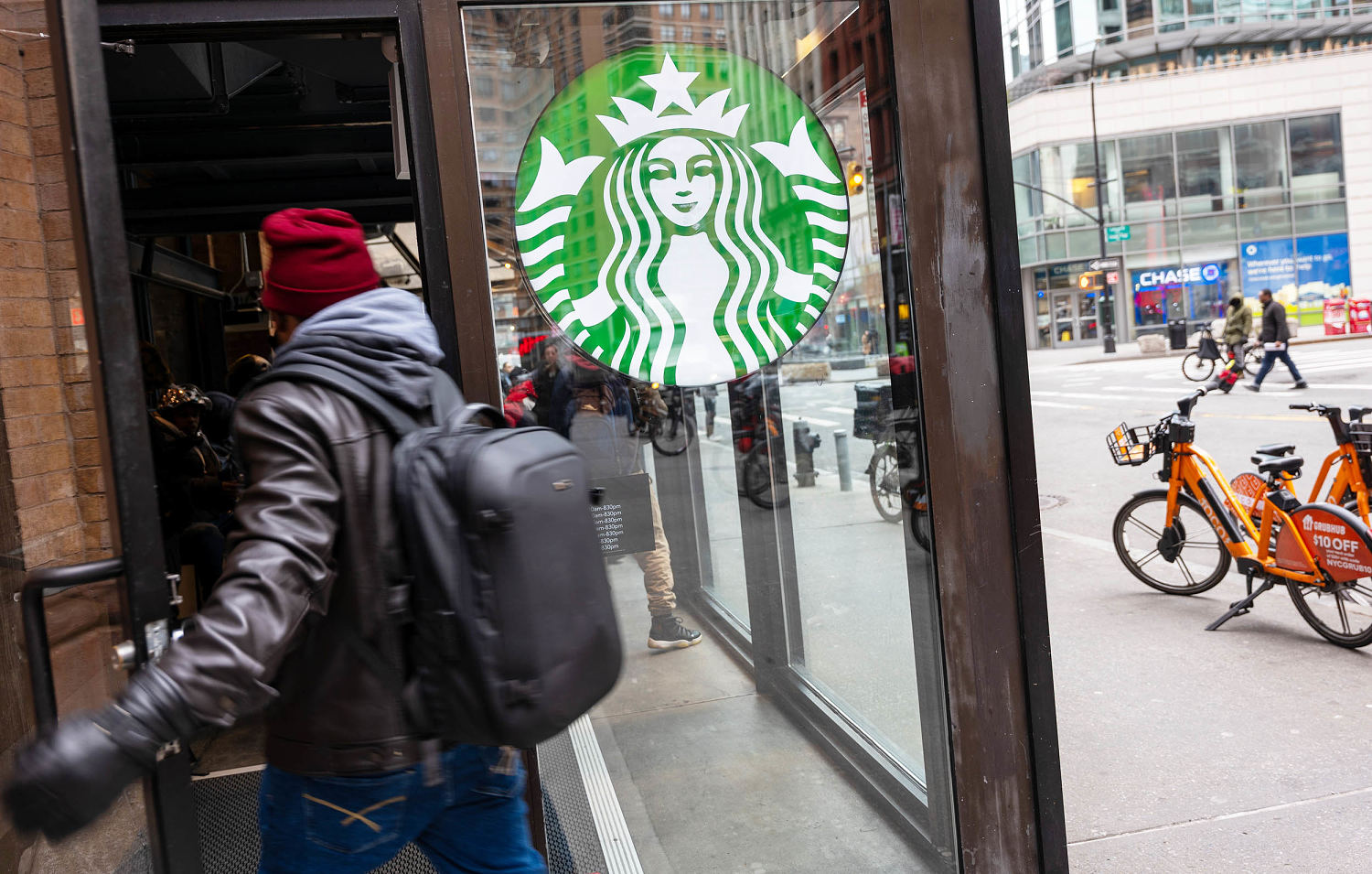
It just got harder to find a bathroom in the United States.
Earlier this week, Starbucks announced the company would limit the use of its premises to paying customers only, with the stated goal of improving their stores’ atmospheres. “By setting clear expectations for behavior and uses of our spaces, we can create a better environment for everyone,” a company spokesperson told USA Today.
But that better atmosphere for Starbucks customers will come with a downside for all of us. If you need to use a bathroom when out and about — and all of us do at some point — life just got harder. As a result of the United States’ paucity of public bathrooms, Starbucks facilities had become de facto facilities for all. The story of its bathrooms demonstrates how we fail to invest in our civic infrastructure and instead privatize what are greater social issues and dilemmas — all of us, after all, need to use the bathroom — and the limits of that policy.
According to a study released in 2021, the United States has eight public toilets per 100,000 people.
Starbucks began its open-door policy in 2018 after a Black man who was meeting a business associate for coffee at a Starbucks was denied use of the location’s restroom. An argument between the staff and the men broke out, police were calledand a national scandal ensued. In an effort to quell the furor, the company declared all were welcome.
According to a study released in 2021, the United States has eight public toilets per 100,000 people. To put that number in context, Iceland has 56 and Switzerland 46. But even that nationwide ratio would be welcomed in our nation’s most populous cities. New York City and Los Angeles have four and five public toilets per every 100,000 residents, respectively. (Philadelphia, where that 2018 incident occurred, also has 4.)
“We expect our taxes to pay for street signs and streetlights and benches,” says Lezlie Lowe, author of No Place to Go: How Public Toilets Fail Our Private Needs. “But we’ve become used to going into a coffee shop and buying a muffin we don’t want to buy in order to access the bathroom.”
Until the 1970s, pay toilets in both public and private settings in the United States was more common. It was understood that the nickel or dime fee would pay for keeping the facilities hygienic. But activists were aghast at the inequity. Women were more often charged for stall use, while men could frequently use urinals free of charge. It was also a burden on the poor. Eventually, California banned their use (the legislation signed by then-Gov. Ronald Reagan), and the pay toilet fell into disfavor.
It was assumed states and cities would step in and build public facilities. But that never happened, at least in most places. It’s not dissimilar to what happened around the same time when the state residential mental health hospitals were shut down and were supposed to be replaced by community facilities that were never funded in adequate numbers.
The people needing to use the facilities aren’t just people out on a shopping trip. They are Uber drivers, Amazon drivers and those delivering food for apps.
Legislation is regularly introduced in the states and cities to address our public toilet needs, but it frequently languishes. True, there are popular TikToks and Reddit threads devoted to the topic, but who has time for that when in a hurry? Instead, people in need rush into businesses they believe might let them use their restrooms. These can be anything from restaurants to malls to grocery stores. The entire exercise is inherently humiliating. No one wants to beg a store clerk for permission to go to the bathroom, especially if they say no.
This puts a burden on embarrassed and in the extremes individuals, who are frequently left to guess whether the nearby fast-food joint will easily let them into their bathroom or insist they purchase a side of fries or a latte first. And the system is inherently inequitable. It is easier, to use a very personal example, for a middle-aged woman dressed in work clothes to gain access to a midtown Manhattan lobby hotel bathroom (and to possess the cultural knowledge to know it is there and open to the public) than it is for a homeless man, for whom it is all but impossible. And as that Philadelphia incident showed, race matters here, as well.
And the people needing to use the facilities aren’t just people out on a shopping trip. They are Uber drivers, Amazon drivers and those delivering food for apps. They are left to resort to carrying “pee bottles” in their vehicles or begging their customers for a favor.
Toilet access is vital for a full public life. That’s why Starbucks’ open-door policy answered a pressing need. It was, as Laura Norén, co-editor of Toilet: Public Restrooms and the Politics of Sharingtold me, “the [highway] rest stop for urban warriors.” The company’s stores are widely viewed as a so-called “third space,” a place outside of home or work where people can gather and socialize. But Starbucks was always, in reality, a private business where access can be yanked at any time. And that’s exactly what happened.
The best outcome here would be if Starbucks’ decision led more cities and states to commit to building more public bathrooms. It can happen. Portland, Oregon — which manufactures and promotes the Portland Looa stand-alone, self-cleaning bathroom — has 17 public toilets per 100,000 residents. More cities and states should follow its lead. The worst outcome would be to flush this opportunity for change down the toilet.
Helaine Olen is a managing editor at the American Economic Liberties Project and a reporter in residence at the Omidyar Network. She is the author of “Pound Foolish: Exposing the Dark Side of the Personal Finance Industry” and a co-author of “The Index Card: Why Personal Finance Doesn’t Have to Be Complicated.” She has been a columnist for The Washington Post and Slate, and her work has also appeared in numerous other publications, including The New York Times and The Atlantic.
The Dictatorship
Energy chief says coal plant orders helped during winter storm
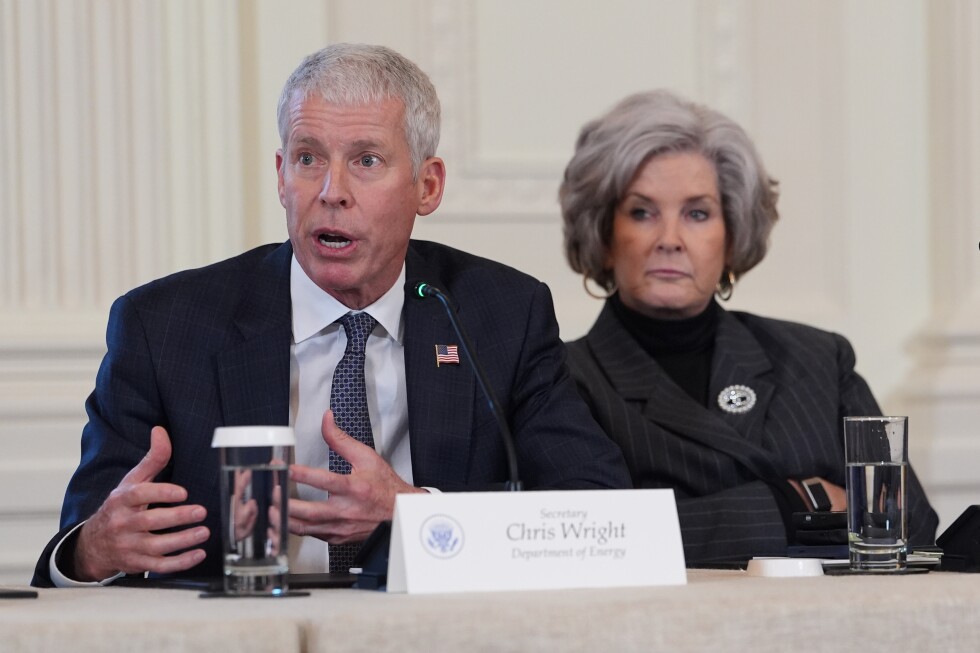
WASHINGTON (AP) — The Trump administration said Friday that its use of emergency orders to keep aging coal-fired plants operating helped prevent a major blackout from power shortages during the brutally frigid weather that has gripped most of America for the past two weeks.
Scattered outages occurred because of ice accumulation that felled local power lines, leaving hundreds of thousands without power, at least briefly. But the nation’s regional power grids generally maintained reliable electricity service, with natural gas and coal leading the way, Energy Secretary Chris Wright and other officials said.
“The big picture story is where we actually got energy from during this storm,” Wright said at a news conference at the Energy Department. “In fact, we had times where our existing capacity couldn’t deliver anything and the lights would have gone out if not for emergency orders.’’
Critics said Wright’s comments understated the role that wind and solar power played during the storm, adding that the administration’s orders over the past nine months to keep some oil and coal-fired plants open past their planned retirement dates could cost U.S. utility customers billions of dollars over the next few years.
In the lead-up to the storm and cold temperatures, Wright also excused utilities from pollution limits on fossil fuel-fired plants and ordered that backup generators at data centers and other large facilities be available to grid operators and utilities to supply emergency power.
Trump administration’s ‘way of doing business’
Deputy Energy Secretary James Danly drew a contrast with the grid performance during a similar severe storm in 2021, calling the Trump administration’s approach a “new way of doing business” during power emergencies.
“The bottom line here is that we managed to ensure that there was sufficient capacity,” Danly said. “Not one area had a blackout or a forced outage due to loss of capacity.”
There were nearly 1 million outages during the storm’s peak, but most were not long-lasting, Danly said. Nearly 55,000 customers were without power as of Friday, including more than 17,000 in Mississippi and 7,000 in Texas, according to the outage tracking website poweroutage.us.
Wright cited statistics showing that natural gas — long the nation’s leading source of electricity — provided 43% of electric power at peak generation during the storm, followed by coal at 24% and nuclear at 15%. Renewables such as wind, solar and hydropower provided a combined 14%, Wright said.
Wright and President Donald Trump have frequently made the case for their fossil fuel-friendly orders, blaming the Biden administration and Democratic-leaning states for policies they say threaten the reliability of the nation’s electric grid and drive up electricity bills.
The proportion of coal and natural gas power rose substantially during the storm, while the proportion of wind power used during the storm dropped by 40%, Wright said. Solar stayed flat at a fraction of the amount of coal and natural gas power.
Wright dismissed solar as “meaningless” during a severe storm in certain regions and said, “It’s not an all-weather power source.”
Pushback on orders to keep coal plants running
Some state and utility officials have chafed at Wright’s orders to keep plants operating, saying they’re not necessary for emergency power and are simply raising electric bills for regular ratepayers to keep relatively expensive plants operating.
Preventing the nation’s coal plants from retiring over the next three years could cost consumers at least $3 billion per year, according to a report from Grid Strategies, a consulting firm.
“A lot of these plants were retiring because they’re no longer economic to operate,” said Michael Goggin, an executive vice president at Grid Strategies. “It’s expensive to keep them going.”
Opponents have challenged the coal orders in court, arguing that Congress intended for emergency powers to be used only in rare, temporary cases.
The nonprofit owners of the Craig Generating Station in Colorado, the Tri-State Generation and Transmission Association and Platte River Power Authority, last week filed a protest with the Energy Department seeking to reverse Wright’s order to keep its Unit 1 operating. The Dec. 30 order came one day before it was to shut down.
In its request for a rehearing, the nonprofits said its members and communities were unfairly being forced to pay to keep a costly and unreliable plant operating and that the department didn’t even comply with the law requiring it to show why this was the best alternative. They also said the department’s order unfairly punished them for the mistakes of other utilities.
Wright brushed off the criticism, saying there would be “far larger costs from blackouts.”
Solar and wind said to save consumers ‘billions’
Clean energy advocates said that renewable sources saved consumers billions during the storm and helped ensure the lights stayed on, especially in regions that have significant investments in wind, solar, and energy storage.
In Texas, wind, solar and storage provided about 25% of power for the grid’s 27 million customers — a major increase over 2021 and a key reason blackouts were largely avoided, said John Hensley, a senior vice president at the American Clean Power Association, an industry group.
Wind and solar also accounted for significant power in the Midwest and Southwest, Hensley said. In the mid-Atlantic region served by grid operator PJM, only 5% of power came from wind and solar generation, a fact Hensley blamed on lack of investment in renewables in the region, as well as hostility by the Trump administration to new wind and solar power.
Blaming renewables for not performing during the storm “is like trying to blame someone on the bench for losing the game,” Hensley said. “They didn’t get a chance” to play.
The Dictatorship
Facing high Trump tariffs, South Africa signs framework agreement for trade deal with China
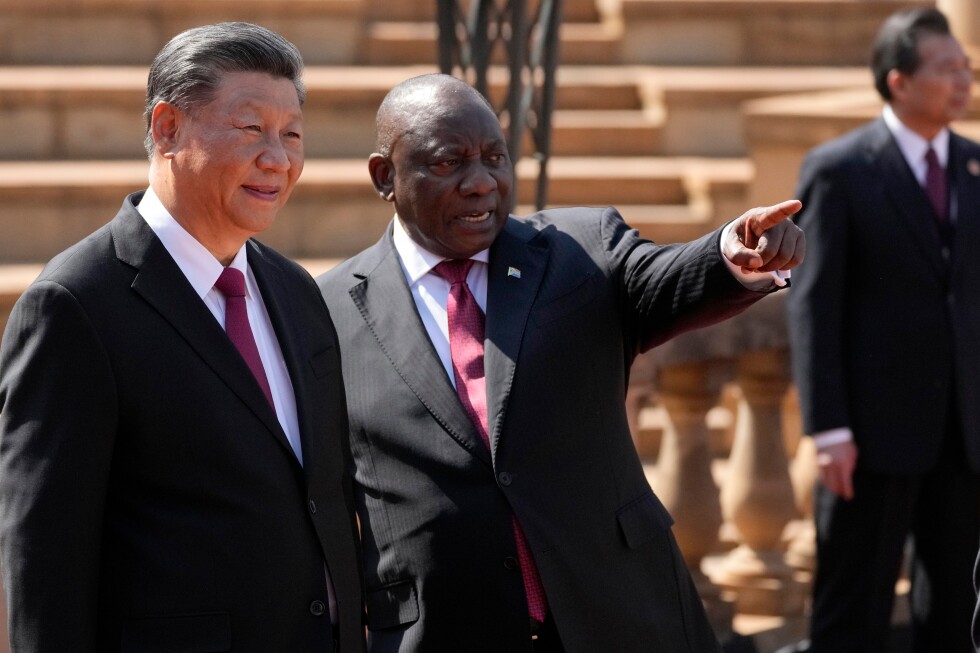
CAPE TOWN, South Africa (AP) — China and South Africa signed a framework agreement for a new trade deal on Friday as Africa’s leading economy looks to other options following the high import tariffs imposed on it by the U.S. and its diplomatic fallout with the Trump administration.
South Africa’s Ministry of Trade and Industry said the agreement would start negotiations over a deal that would give some South African goods, such as fruit, duty-free access to the Chinese market. The ministry said it expected the trade deal to be finalized by the end of March.
In return, the trade ministry said China will get enhanced investment opportunities in South Africa, where its car sales have seen rapid growth.
The U.S. slapped 30% duties on some South African goods under U.S. President Donald Trump’s reciprocal tariffs policy — one of the higher rates applied across the world. South Africa has said it is still negotiating with the U.S. for a better deal.
The China-South Africa deal follows others looking for alternatives to U.S. partnership in the face of Trump’s aggressive trade policies.
The announcement on the negotiations between China and South Africa came days after Trump issued a short-term renewal of a longstanding free-trade agreement between the U.S. and African nations. The U.S. extended the African Growth and Opportunity Act, which South Africa is a major beneficiary of, just until the end of the year and indicated it would be modified to fit the administration’s America First policy.
China is already South Africa’s largest trade partner for both imports and exports, while Chinese economic influence across the African continent continues to grow and it dominates in the extraction of Africa’s critical minerals that are key components for new high-tech products.
“South Africa looks forward to working with China in a friendly, pragmatic and flexible manner,” the trade ministry said.
Trade and Industry Minister Parks Tau, who traveled to China to sign the agreement, said the deal would benefit South Africa’s mining, agriculture, renewable energy and technology sectors.
U.S.-South Africa diplomatic ties have plunged to their worst point in decades after the Trump administration accused South Africa of pursuing an anti-American foreign policy and allowing the violent persecution of a white minority group at home. South Africa’s government has denied allegations that white Afrikaner farmers are being killed in a widespread effort to seize their land as baseless.
Trump has also barred South Africa from taking part in meetings of the Group of 20 rich and developing nations this year in the U.S.
South Africa’s biggest exports to China are gold, iron ore and platinum-group metals, while Chinese cars have quickly grown their market share in South Africa. Industry groups estimate Chinese brands have grown from around 2.8% of the South African market in 2020 to between 11% and 15% last year.
China’s BYD overtook Elon Musk’s Tesla in 2025 as the world’s biggest electric vehicle maker.
___
AP Africa news: https://apnews.com/hub/africa
The Dictatorship
Treasury Secretary Bessent’s testimony descends into shouting matches
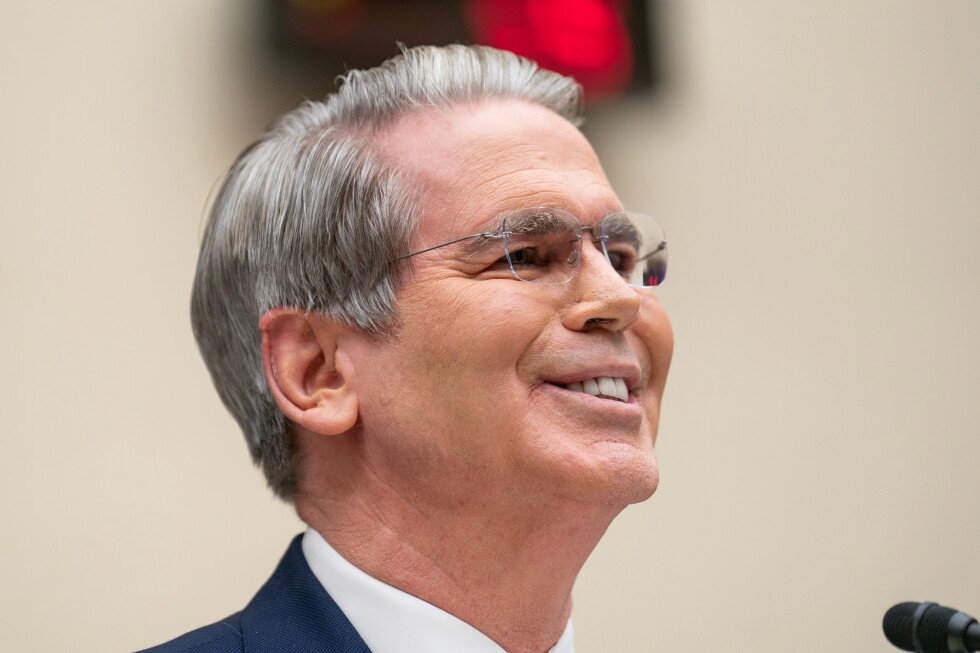
WASHINGTON (AP) — A hearing about oversight of the U.S. financial system devolved into insults several times Wednesday as Treasury Secretary Scott Bessent clashed with Democratic lawmakers over fiscal policy, the business dealings of the Trump family and other issues.
Appearances by treasury secretaries on Capitol Hill are more typically known for staid exchanges over economic policy than for political theater, but Wednesday’s hearing of the House Financial Services Committee hearing featured several fiery exchanges between the Republican Cabinet member and Democrats, with Bessent even lobbing insults back to the lawmakers.
Bessent called Rep. Sylvia Garcia “confused” when she questioned how undocumented immigrants could affect housing affordability across the country, prompting the Texas Democrat to snap back, “Don’t be demeaning to me, alright?”
Bessent later mocked a question from Rep. Stephen Lynch, D-Mass., about shuttered investigations into cryptocurrency firms. Lynch expressed frustration with Bessent’s interruptions, saying, “Mister Chairman, the answers have to be responsive if we are going to have a serious hearing.”
Bessent replied, “Well, the questions have to be serious.”
After a back-and-forth over whether tariffs cause inflation or one-time price increases for consumers, California Democratic Rep. Maxine Waters asked committee leaders to intervene with Bessent: “Can someone shut him up?”
And in a fiery exchange with Rep. Gregory Meeks over the Abu Dhabi royal family’s investment into the Trump family’s World Liberty Financial cryptocurrency firm last year, the New York Democrat dropped an F-bomb as he shouted at Bessent: “Stop covering for the president! Stop being a flunky!”
The Treasury Department did not immediately respond to a request for comment on the fireworks.
Bessent’s performance was “not a role you typically see a treasury secretary play,” said Graham Steele, a former assistant secretary for financial institutions under Biden-era Treasury Secretary Janet Yellen. The department has traditionally “been removed from some of the day-to-day, hand-to-hand political combat,” Steele said in an interview.
He recalled his former boss having tense exchanges over climate change and policy issues with Republican lawmakers during committee hearings, but the exchanges were not personal, he said, noting treasury secretaries have to strike a “delicate balance” of working with the White House while safeguarding the “economic stature” of the country internationally.
In recent months, Bessent has ratcheted up his insults when it comes to Democratic leaders.
He has called California Gov. Gavin Newsom “economically illiterate,” compared him to the fictional serial killer Patrick Bateman, and called him “a brontosaurus with a brain the size of a walnut.” He has on several occasions called Massachusetts Sen. Elizabeth Warren an “American Peronist” after she told American financial institutions not to finance the Trump administration’s massive support package for Argentina.
Bessent’s combativeness is, in part, a sign of the times, said David Lublin, chair of the Department of Government at American University’s School of Public Affairs.
“President Trump has shown he likes belligerence and he likes nominees and others who defend him vociferously,” Lublin told The Associated Press.
“It’s hard to say that this is unusual for this political environment. What used to be the normal modicum of respect for Congress has frayed to the point of vanishing,” Lublin said.
What was unusual, in Lublin’s view, was for Bessent to reveal his thoughts on monetary policy — normally the purview of the Federal Reserve — and his insistence that Trump has the right to interfere with the decision-making of the central bank. “You have a cabinet secretary defending the president’s efforts to erode institutions,” Lublin said.
On Thursday, Bessent will get another opportunity to spar with lawmakers. He is scheduled to appear before the Senate Banking, Housing and Urban Affairs Committee on the same topic: the annual report by the Financial Stability Oversight Council, which Bessent leads.
-

 The Dictatorship12 months ago
The Dictatorship12 months agoLuigi Mangione acknowledges public support in first official statement since arrest
-

 Politics12 months ago
Politics12 months agoFormer ‘Squad’ members launching ‘Bowman and Bush’ YouTube show
-

 The Dictatorship5 months ago
The Dictatorship5 months agoMike Johnson sums up the GOP’s arrogant position on military occupation with two words
-

 Politics12 months ago
Politics12 months agoBlue Light News’s Editorial Director Ryan Hutchins speaks at Blue Light News’s 2025 Governors Summit
-

 The Dictatorship12 months ago
The Dictatorship12 months agoPete Hegseth’s tenure at the Pentagon goes from bad to worse
-

 Politics12 months ago
Politics12 months agoFormer Kentucky AG Daniel Cameron launches Senate bid
-
Uncategorized1 year ago
Bob Good to step down as Freedom Caucus chair this week
-

 Politics10 months ago
Politics10 months agoDemocrat challenging Joni Ernst: I want to ‘tear down’ party, ‘build it back up’



